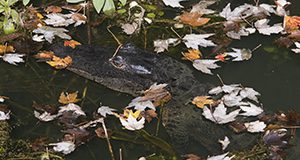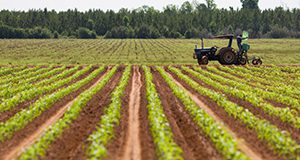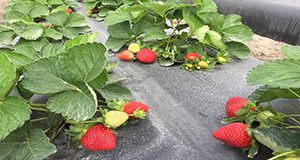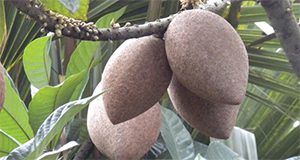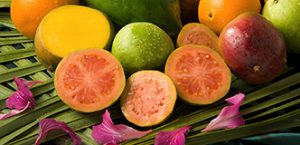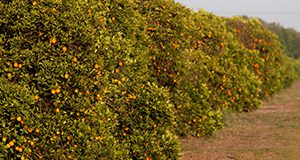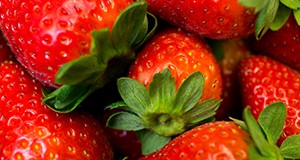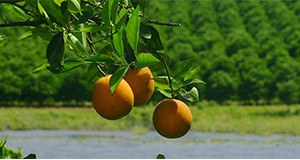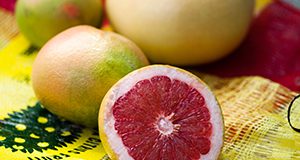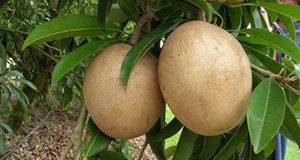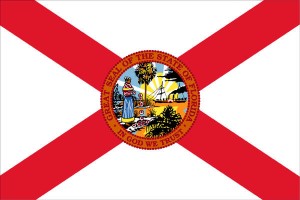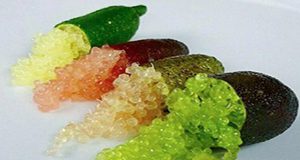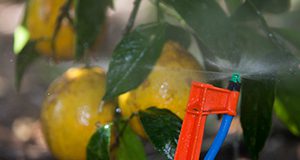La Ley del Agua de Florida de 2016, una política integral de agua que aborda los problemas críticos del suministro y la calidad de agua en la Florida, entró en vigor el 1 de julio de 2016. Creó la Ley de Protección de Acuíferos y Manantiales de Florida, que protege los manantiales alimentados por el acuífero floridano. Written by Michael Olexa, Tatiana Borisova, and Jarrett Davis and published by the UF/IFAS Food and Resource Economics Department.
http://edis.ifas.ufl.edu/fe1047
Tag: Food and Resource Economics Department
Farm Business Start-Up Checklist for Northeast Florida
This 12-page fact sheet written by Kevin Athearn and Jennifer Johns and published by the UF/IFAS Food and Resource Economics Department lists steps for starting a farm business in Northeast Florida, along with resources and contact information to assist a new farmer with completing each step.
http://edis.ifas.ufl.edu/fe1042
Blueberry Frost Protection Practices in Florida and Georgia
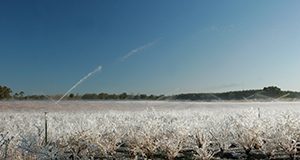
Written by Tatiana Borisova, Elizabeth Conlan, Erick Smith, Mercy Olmstead, and Jeffrey Williamson and published by the UF/IFAS Food and Resource Economics Department, this publication was developed to assist professionals attempting to establish a benchmark for when to use frost protection in blueberry production. This benchmark can assist in developing outreach strategies to educate producers about frost protection strategies, and it can also help measure changes in their frost protection behavior over time.
http://edis.ifas.ufl.edu/fe1045
Labor Shortages in the Florida Strawberry Industry
Florida is the largest supplier of domestic winter strawberries in the United States, and labor is the largest cost item in the Florida strawberry production budget. Labor shortages are a major threat to the industry. This 3-page fact sheet written by Trina Biswas, Feng Wu, and Zhengfei Guan and published by the UF/IFAS Food and Resource Economics Department investigates growers’ labor demand and labor shortages based on a survey conducted in 2016.
https://edis.ifas.ufl.edu/fe1041
Cost and Return Estimates of a Mamey Sapote Grove in South Florida, 2017
The objective of this 6-page fact sheet written by Fredy H. Ballen, Aditya Singh, Edward A. Evans, and Jonathan Crane and published by the UF/IFAS Food and Resource Economics Department is to provide an estimate of the costs and returns associated with an established mamey sapote orchard in south Florida.
http://edis.ifas.ufl.edu/fe1039
Cost Estimates of Producing Pink Guava (Psidium guajava L.) in South Florida
This 6-page fact sheet written by Edward Evans, Fredy H. Ballen, Jonathan Crane, and Aditya Singh and published by the UF/IFAS Food and Resource Economics Department presents the estimated costs and returns associated with the operation of an established pink guava grove in south Florida. The information presented was collected through field interviews with growers and industry specialists; it reflects a wide diversity of production techniques in small guava orchards. The information presented is intended only as a reference to estimate the financial requirements of operating an established pink guava grove.
http://edis.ifas.ufl.edu/fe1036
The H-2A Program and Immigration Reform in the United States
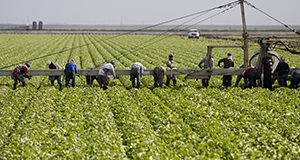
The Immigration and Nationality Act (INA) of 1952 authorized a nonimmigrant visa category, known as H-2, for foreign agricultural and nonagricultural workers to come to the United States and perform temporary services. To protect against disruptions in the farm labor supply, many growers are turning to the H-2A program to import foreign guest workers. This 5-page fact sheet written by Berdikul Qushim, Zhengfei Guan, and Fritz M. Roka and published by the UF/IFAS Food and Resource Economics Department explains the H-2A program and briefly discusses immigration reform.
http://edis.ifas.ufl.edu/fe1029
An Overview of the US Bell Pepper Industry
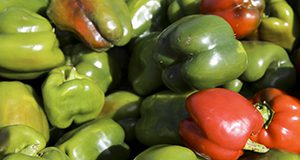
Bell pepper is one of the most widely cultivated vegetable crops in the world; it is widely grown all over the United States, and production of bell pepper has been a major economic contribution to the vegetable industry in Florida and California. This 4-page fact sheet written by Trina Biswas, Zhengfei Guan, and Feng Wu and published by the UF/IFAS Food and Resource Economics Department provides an overview of the US bell pepper industry, including production, prices, and trade.
http://edis.ifas.ufl.edu/fe1028
The US Tomato Industry: An Overview of Production and Trade
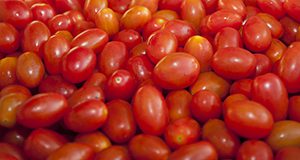
Tomatoes are one of the world's most consumed vegetable crops. In the United States, domestic production meets about 40% of the total domestic demand for fresh-market tomatoes, with the rest of the demand met by imports, mostly from Mexico and Canada. Since 2000, however, fresh tomato production in the United States has exhibited a steady declining trend. One major reason is the increased competition from Mexico. This 4-page fact sheet written by Zhengfei guan, Trina Biswas, and Feng Wu and published by the UF/IFAS Food and Resource Economics Department argues for US government measures to help the domestic tomato industry resolve labor shortages and encourage research and development of labor-saving technologies such as mechanical harvesting to make the US tomato industry more competitive and sustainable.
http://edis.ifas.ufl.edu/fe1027
Labor Requirements and Costs for Harvesting Tomatoes
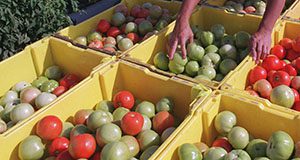
Florida accounts for 30% to 40% of all commercially produced fresh-market tomatoes in the United States. Almost every southern county in the state grows tomatoes. This 4-page fact sheet written by Zhengfei Guan, Feng Wu, and Steven Sargent and published by the UF/IFAS Food and Resource Economics Department presents the results of a 2015 study that examined the time it takes to harvest this important crop.
http://edis.ifas.ufl.edu/fe1026
Economic Contributions of the Florida Citrus Industry in 2015/16
This 2-page fact sheet written by Christa D. Court, Alan W. Hodges, Mohammad Rahmani, and Thomas H. Spreen and published by the UF/IFAS Food and Resource Economics Department describes the economic contributions of the citrus industry to the state of Florida in fiscal year 2015/16, updating previous studies for 2012/13 and 2014/15 and previous estimates for the economic impacts of citrus greening disease.
edis.ifas.ufl.edu/fe1021
Florida Strawberry Growers Need More Early Yield to Improve Profitability
Fresh strawberries are a major US fruit crop. This 3-page fact sheet written by Feng Wu, Zhengfei Guan, and Vance Whitaker and published by the UF/IFAS Food and Resource Economics Department summarizes recent research on strawberry yield patterns and how they are predicted to affect profits. It is intended primarily for those involved in Extension, marketing, policy-making, production, and research related to the Florida strawberry industry. We believe that a better understanding of yield and price dynamics will be valuable to industry decision-makers.
http://edis.ifas.ufl.edu/fe1032
Cost of Production for Processed Oranges in Southwest Florida, 2016/17
This 5-page fact sheet written by Ariel Singerman and published by the UF/IFAS Food and Resource Economics Department summarizes the cost of production per acre for processed oranges grown in southwest Florida during the 2016/17 season. Typical users of the estimates include growers and consultants, who use them as a benchmark; property appraisers, who use them to compute the taxes for property owners; and researchers, who use the estimates to evaluate the economic feasibility of potential new technologies.
http://edis.ifas.ufl.edu/fe1038
Cost of Production for Fresh Market Grapefruit Grown in Indian River, Florida 2016/17
This 5-page fact sheet written by Ariel Singerman and published by the UF/IFAS Food and Resource Economics Department presents the cost of production per acre for growing fresh grapefruit in the Indian River region during 2016/17. Typical users of the estimates include growers and consultants, who use them as a benchmark; property appraisers, who use them to compute the taxes for property owners; and researchers, who use the estimates to evaluate the economic feasibility of potential new technologies.
http://edis.ifas.ufl.edu/fe1037
Budget Template for Home Canning
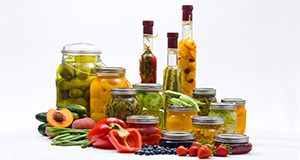
One in five US households cans fruits or vegetables in a home kitchen. If your household is one of them, you may want to know the full cost of the activity or how much money you are saving by doing it yourself. This 10-page fact sheet written by Kevin R. Athearn, Amarat Simonne, and Soohyoun Ahn and published by the UF/IFAS Food and Resource Economics Department presents a template designed to assist you in estimating the cost and potential returns from canning food at home.
http://edis.ifas.ufl.edu/fe1034
Cost Estimates of Producing Sapodilla in South Florida, 2017
This 6-page fact sheet written by Edward A. Evans, Fredy H. Ballen, Aditya Singh, and Jonathan H. Crane and published by the UF/IFAS Food and Resource Economics Department provides an estimate of the costs and returns associated with an established sapodilla orchard in south Florida. The information presented is based on a wide range of production practices collected through field interviews with growers and industry specialists and is intended as a guide to estimate the financial aspects of operating an established sapodilla grove. Please note that sapodilla has been assessed by the UF/IFAS Invasive Plants Working Group as potentially invasive in south and central Florida. It should not be planted in home landscapes or in groves near natural areas. Sapodilla plantings must be fenced, and the fruit must be moved in covered vehicles to prevent fruit being eaten by wildlife and the plant from infesting areas outside the grove.
http://edis.ifas.ufl.edu/fe1015
Public Policy Issues in Florida: 2017-18 Constitution Revision Commission (CRC)
It is an exciting time in Florida public policy; the once-in-every-two-decades Constitution Revision Commission is in the process of recommending changes to the Florida state constitution. This 4-page fact sheet written by Rodney L. Clouser and published by the UF/IFAS Food and Resource Economics Department describes the process and explains how to get involved, evaluate the proposals for changes to the constitution, and cast an informed vote in November 2018.
http://edis.ifas.ufl.edu/fe1035
Finger Lime: An Alternative Crop with Great Potential in South Florida
Cylindrical Australian finger limes (Microcitrus australasica) taste like a combination of lemon, lime, and grapefruit, come in a rainbow of colors, and have a texture like caviar. Like other citrus fruits, finger limes are nutritious, low in calories, and vitamin-rich. So far in the United States only California grows finger limes commercially, but this 4-page fact sheet written by Aditya Singh, Edward Evans, Jeff Wasielewski, Manjul Dutt, and Jude Grosser and published by the UF/IFAS Food and Resource Economics Department makes the case that exotic, colorful finger limes would likely grow well in Florida, where they would appeal to hoteliers and restaurants and to adventurous, health-conscious consumers on the lookout for a delicious new fresh fruit snack to try.
http://edis.ifas.ufl.edu/fe1033
Handbook of Florida Water Regulation: 2016 Florida Water Bill
This handbook is designed to provide an accurate, current, and authoritative summary of the principal federal and state laws that directly or indirectly relate to agriculture. Written by Tatiana Borisova, Michael T. Olexa, and Jarrett Davis and published by the UF/IFAS Food and Resource Economics Department, this chapter of the handbook provides a basic overview of the Florida Water Bill.
http://edis.ifas.ufl.edu/fe1018
Handbook of Florida Water Regulation: Florida Springs and Aquifer Protection Act
This handbook is designed to provide an accurate, current, and authoritative summary of the principal federal and state laws that directly or indirectly relate to agriculture. Written by Tatiana Borisova, Michael T. Olexa, and Jarrett Davis and published by the UF/IFAS Food and Resource Economics Department, this chapter of the handbook provides a basic overview of the Florida Springs and Aquifer Protection Act.
http://edis.ifas.ufl.edu/fe1019
